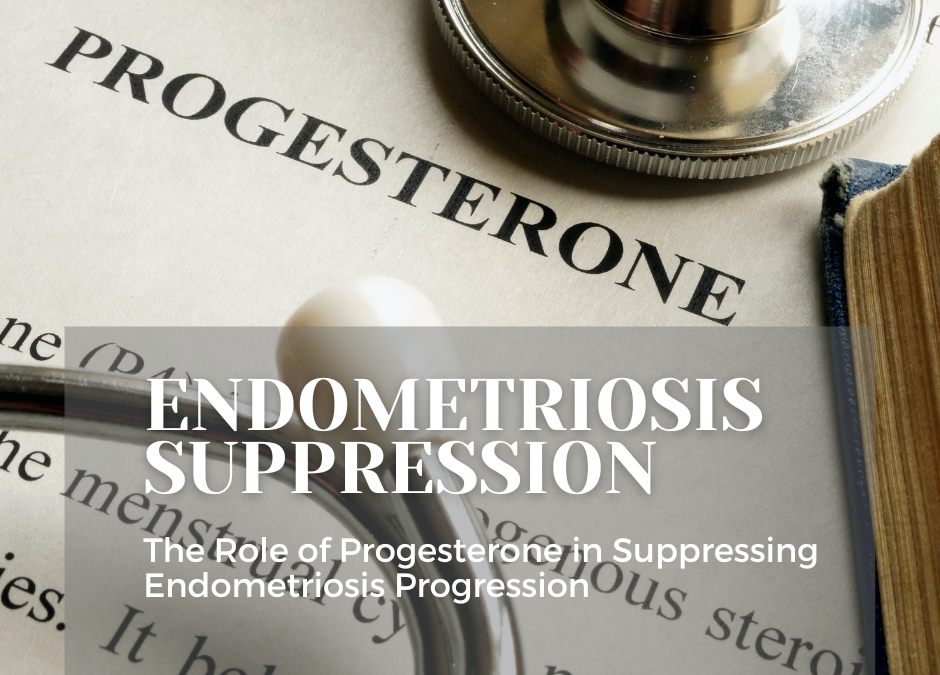Progesterone plays a key role in the female reproductive system. First and foremost, progesterone is a hormone that plays a crucial role in the menstrual cycle and in maintaining the early stages of pregnancy. It helps to regulate the menstrual cycle, prepare the uterus for implantation of a fertilized egg, and maintain pregnancy.
Progesterone and Endometriosis: The Connection
Endometriosis is a condition characterized by the growth of endometrial-like tissue outside the uterus, often resulting in pain and, in some cases, fertility issues. One of the key factors driving this process is hormonal imbalance—specifically, an overabundance of estrogen compared to progesterone, a state known as estrogen dominance.
Progesterone has the ability to counteract the effects of estrogen. In a normal menstrual cycle, progesterone levels rise after ovulation. This rise inhibits the growth of the endometrial cells, stabilizing the endometrium in preparation for potential pregnancy. If pregnancy does not occur, progesterone levels drop, triggering menstruation.
In endometriosis, the balance is skewed. The endometrial-like tissue found outside the uterus is also sensitive to hormonal fluctuations. High levels of estrogen can promote the growth of these cells, exacerbating the symptoms of endometriosis.
Progesterone as a Suppressant
Progesterone can help to suppress the progression of endometriosis in several ways. Here’s how:
- Inhibiting Cell Growth: Progesterone acts as an anti-proliferative agent. This means it can inhibit the growth of endometrial cells, both within and outside the uterus.
- Regulating Inflammation: Endometriosis often causes inflammation, contributing to pain and discomfort. Progesterone has anti-inflammatory properties, which can help manage this inflammation and potentially alleviate symptoms.
- Preventing New Lesion Formation: Research has suggested that progesterone may help prevent the formation of new endometriotic lesions. This could be a significant factor in controlling the progression of the disease.
- Promoting Apoptosis: Apoptosis is a process of programmed cell death that the body uses to remove unwanted cells. Some studies suggest that progesterone may promote apoptosis in endometrial cells, helping to limit their spread.
By regulating estrogen dominance, preventing new lesion formation, and promoting apoptosis, progesterone has the potential to transform the lives of women suffering from endometriosis. It can help manage symptoms, slow the progression of the disease, and improve quality of life.
While the role of progesterone in suppressing endometriosis progression is promising, it’s important to remember that each person’s situation is unique. What works for one person may not work for another. Always consult with a healthcare professional to find the best treatment plan for you.
**Disclaimer:** The information in this blog post should not replace professional medical advice. Always consult with a healthcare professional before starting any new treatment.

